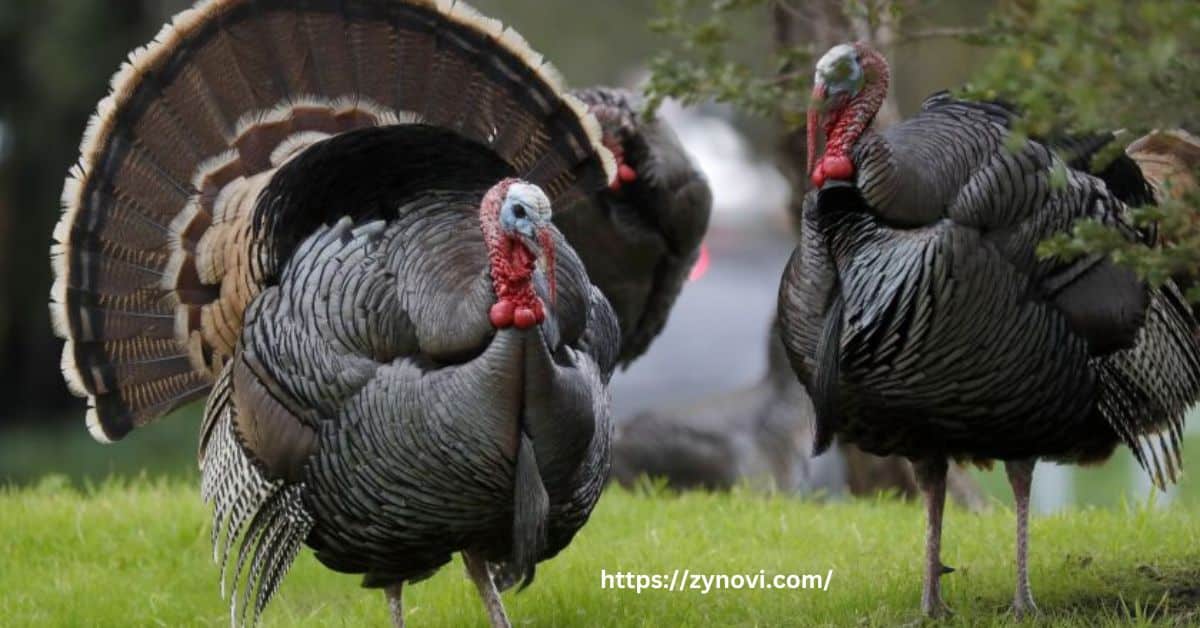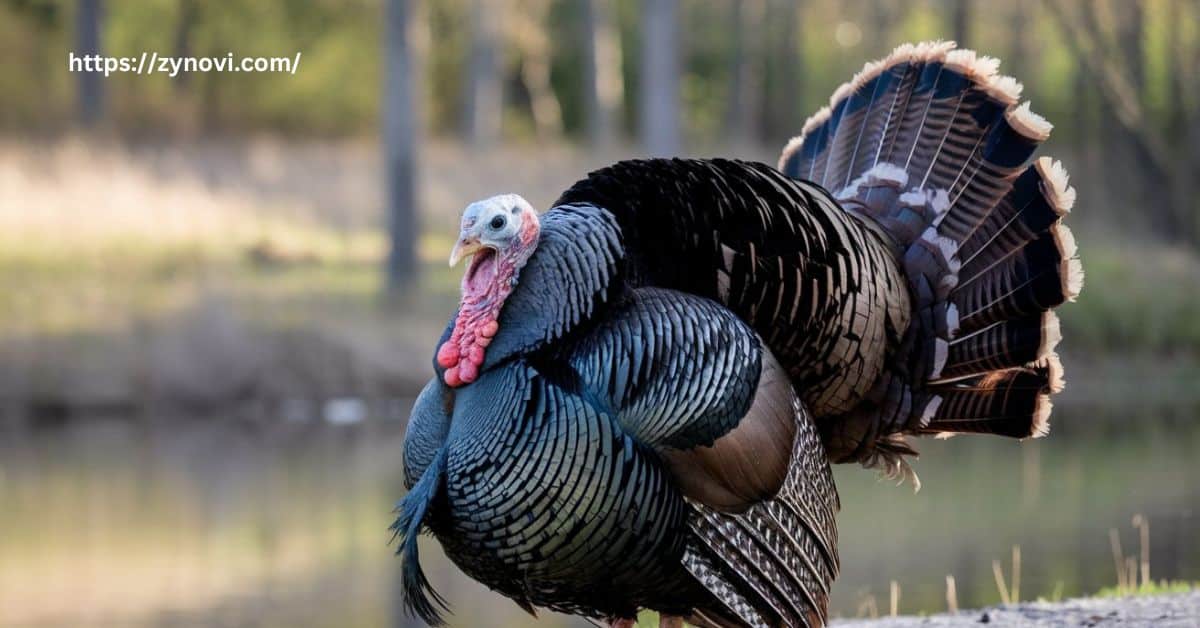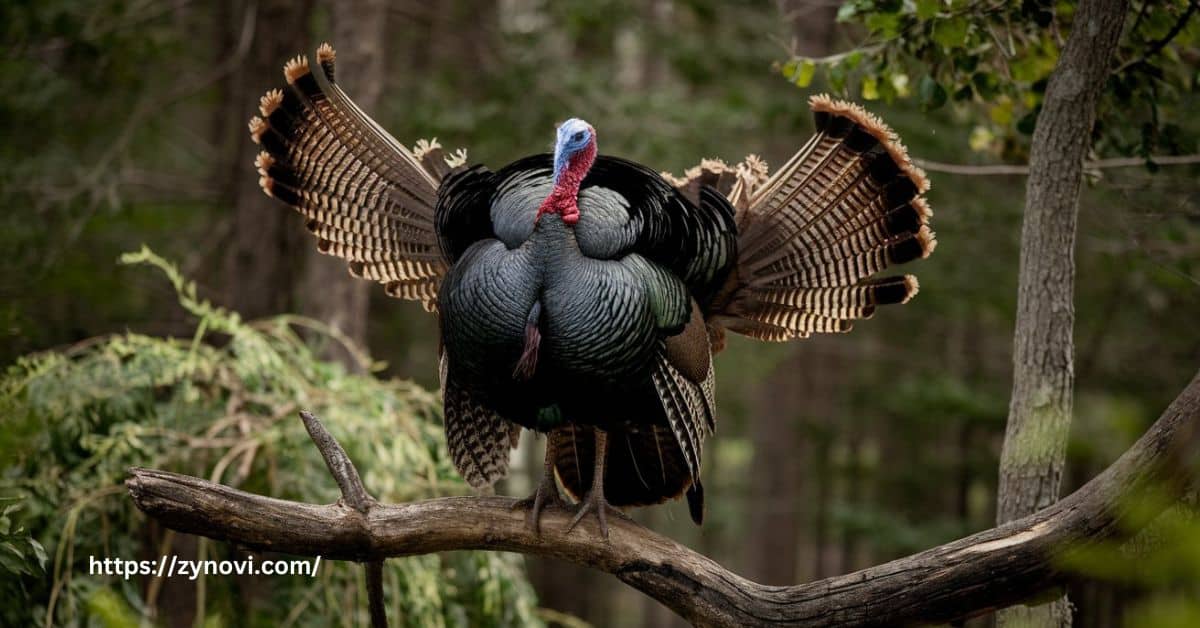Do turkeys attack humans? While rare, turkeys can attack humans, especially if they feel threatened or during mating season.
It’s a question you might never have thought to ask, but with more wild turkeys venturing into urban areas, it’s becoming a topic of interest. While these birds are fascinating, many people wonder whether their sharp spurs and territorial instincts could lead to trouble for unsuspecting humans.
If you’ve ever crossed paths with a wild turkey, you know they can be a bit intimidating. In this article, we’ll find what makes turkeys aggressive, how to spot warning signs, and how you can stay safe if you find yourself face-to-face with one. Keep reading to uncover the truth!
Understanding Turkeys
Before diving into the specifics of turkey attacks, it’s important to understand the basics about turkeys. There are two primary types of turkeys: wild turkeys and domestic turkeys.
- Wild turkeys are native to North America, Wild turkeys, often associated with Thanksgiving celebrations and the great outdoors, are known for their majestic appearance and unique behaviors.
- Domestic turkeys are bred for consumption and kept on farms.
Both types share some similarities, but wild turkeys have more developed natural instincts.
Physical Features of Wild Turkeys
| Physical Feature | Description |
|---|---|
| Snood | A fleshy part that hangs over the beak, more pronounced in males, used in courtship displays. |
| Wattles | Fleshy skin that hangs under the beak, another key feature in male turkeys. |
| Spurs | Sharp, bony protrusions on the legs of male turkeys, used during territorial disputes. |
| Tail Feathers | Fan-shaped tail feathers, used in displays during mating season and to appear larger when threatened. |
| Size | Males weigh up to 20-24 pounds, females are typically smaller. |
| Flight Ability | Wild turkeys are excellent fliers, capable of reaching speeds of up to 55 miles per hour. |
| Diet | Omnivores, eating a variety of seeds, fruits, insects, and small animals. |
Do Turkeys Attack Humans?

While wild turkeys are not naturally aggressive, they can become so under certain circumstances. Most turkey attacks are not life-threatening, but they can be startling and sometimes cause injuries.
Understanding when and why turkeys attack humans is key to avoiding such confrontations.
How Turkeys React to Threats
Wild turkeys are generally peaceful creatures. However, if they feel threatened or cornered, they will display defensive behaviors. Their territorial instincts kick in when they perceive an intruder human or otherwise coming too close to their territory.
Some common signs of a threatened turkey include:
- Puffing feathers to appear larger
- Fanning tail feathers in an attempt to intimidate
- Loud gobbling or clucking to warn off intruders
- Charging or striking with their powerful legs and sharp spurs
Wild turkeys may feel threatened for various reasons, such as sudden movements, loud noises, or direct confrontation.
The perceived threat doesn’t necessarily mean that the turkey is aiming to harm the human but is instead attempting to assert dominance over its environment.
Turkey Behavior and Territorial Instincts in Mating Season
- Aggression is more likely during the mating season in spring. Male turkeys are particularly territorial and protective of their area.
- During this time, turkeys are more likely to confront perceived threats, whether it be other animals or humans.
- The mating season is a time when male turkeys go into full display mode, trying to attract mates and defend their turf.
- Their territorial behavior can lead to increased aggressive turkey encounters, especially if humans inadvertently get too close to their nesting areas.
- Turkey aggression during breeding season is common and can be intensified if a human or another animal is seen as a rival.
Human and Urban Interactions

As urban sprawl increases, more wild turkeys are adapting to living in suburban and urban areas. These turkeys are more likely to encounter humans and, in some cases, become habituated to their presence.
When turkeys are fed by humans or are frequently exposed to human activity, they can lose their natural wariness and start to perceive humans as a threat or even as a food source.
In urban areas, wild turkeys may come into closer proximity to humans, often wandering through parks, backyards, and even streets.
Their territorial instincts can lead them to attack, especially if they feel cornered or provoked by human behavior.
Feeding wild turkeys can exacerbate this problem, as they become more comfortable around people and may act more aggressively when they feel hungry or threatened.
Recognizing the Warning Signs of Turkey Aggression
Knowing how to identify the warning signs of turkey aggression can help you avoid dangerous situations. Here are some key behaviors to watch for:
- Tail feathers fanned: This is a common defensive posture.
- Raising wings: The turkey may try to appear larger.
- Loud gobbling or clucking: The turkey is signaling its discomfort and dominance.
- Chasing or charging: If a turkey starts moving toward you in a purposeful way, it could be a sign of aggression.
- Pecking or striking: If a turkey feels cornered, it may attack with its beak or spurs.
If you see any of these signs, it’s best to back away slowly and avoid making sudden movements that could escalate the situation.
Are Turkey Attacks Dangerous?
Most turkey attacks are not life-threatening, but they can still cause injuries. The real risk comes from the sharp spurs on male turkeys’ legs, which can cause puncture wounds. These spurs are especially dangerous during the breeding season when the males are more prone to using them aggressively.
While turkey attacks are rare, they can be more common in urban areas where turkeys have become accustomed to human interaction. The elderly, young children, and pets are more at risk during these encounters, as they may not be able to react quickly enough to avoid a turkey’s aggression.
How to Avoid Turkey Attack

To prevent wild turkey attacks, it’s important to understand the behaviors that lead to aggression and how to avoid provoking turkeys. Here are some tips on how to protect yourself and your loved ones:
Preventative Measures to Take
- Maintain a safe distance: Always keep a safe distance from wild turkeys, especially during mating season.
- Avoid eye contact: Eye contact can be interpreted as a challenge, so it’s best to avert your gaze.
- Don’t feed turkeys: Feeding wild turkeys encourages habituation, making them more likely to act aggressively.
- Avoid loud noises: Loud, sudden noises can startle turkeys and trigger a defensive response.
- Use deterrents: Loud noises, reflective objects, or water sprays can help deter turkeys from coming too close.
How to Handle an Aggressive Turkey Encounter
If you encounter an aggressive turkey, here are some steps to take:
- Back away slowly without turning your back on the bird.
- Make yourself appear larger by raising your arms or holding an object above your head.
- Use loud noises to startle the turkey and make it retreat. A loud whistle, clap, or even shaking a can filled with coins can work.
- Move toward a shelter like a car or building if the turkey continues to advance.
By taking these actions, you can safely remove yourself from a potentially dangerous situation without provoking the turkey further.
Final Verdict
In conclusion, turkey attacks on humans are rare but can occur, particularly when turkeys feel threatened or during mating season. To avoid conflict, understand turkey behavior, recognize warning signs, and maintain a safe distance.
Most encounters can be peaceful by not feeding or provoking them. Wild turkeys are generally not dangerous unless provoked, but in urban areas, it’s crucial to respect their space and avoid confrontation.
FAQs
Are turkeys aggressive towards humans?
Turkeys can be aggressive, particularly during mating season or if they feel threatened or cornered.
What to do if a turkey chases you?
Stay calm, back away slowly, and avoid making sudden movements. If necessary, use loud noises to deter the turkey.
Are turkeys friendly to humans?
Turkeys are generally not friendly to humans, but they can become accustomed to human presence in urban areas.
Why is a turkey chasing me?
A turkey may chase you if it feels threatened, is protecting its territory, or sees you as a rival during mating season.
Conclusion: Do Turkeys Attack Humans?
In conclusion, while wild turkeys can display aggression, especially during mating season, attacks on humans are rarely dangerous. The primary risk of injury comes from their sharp spurs. By understanding turkey behavior and taking preventive measures, such as keeping a safe distance and avoiding provoking them, you can reduce the chances of a confrontation.
If you encounter an aggressive turkey, stay calm, back away slowly, and use deterrents like loud noises to protect both your safety and the turkey’s well-being.










